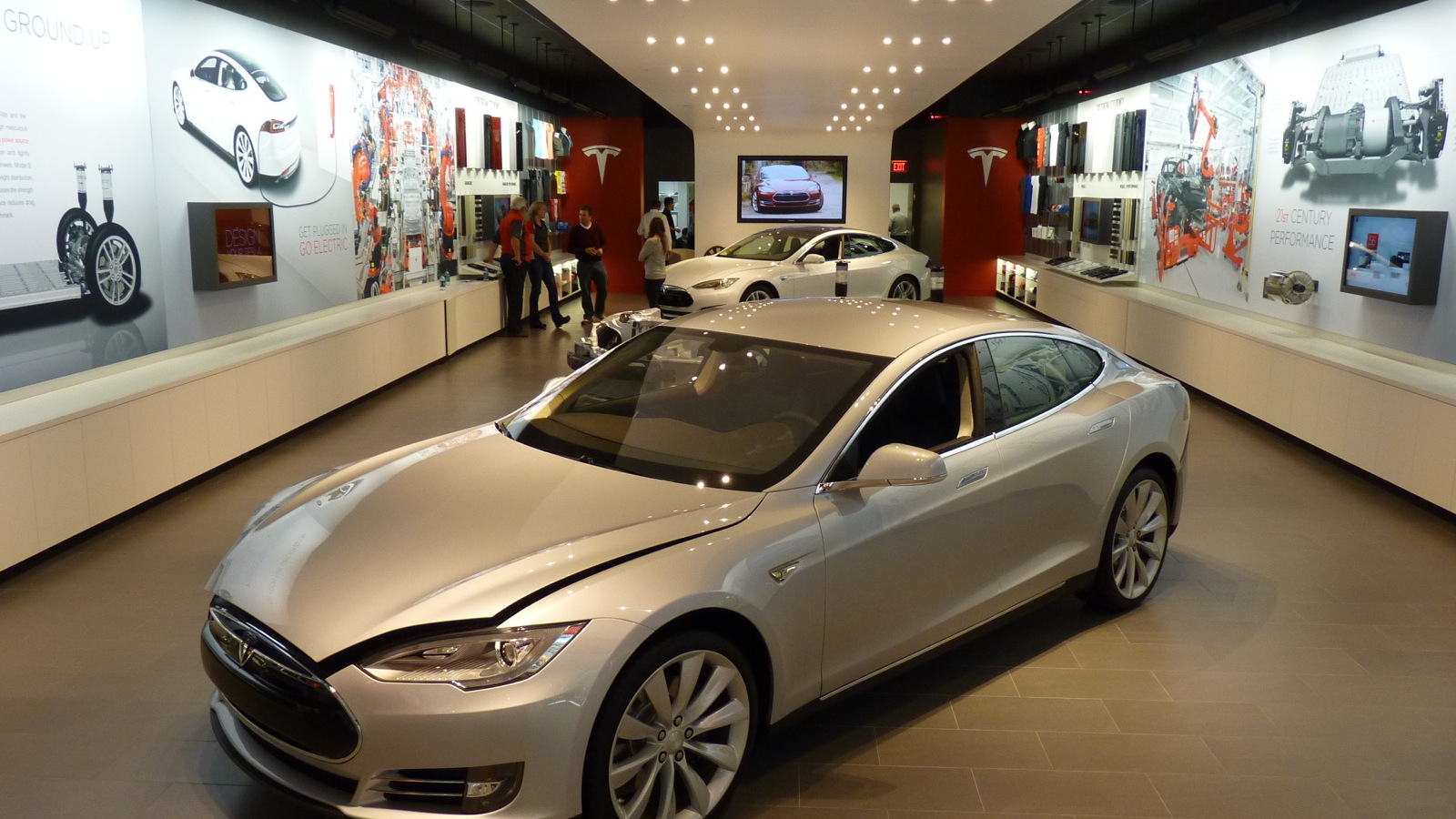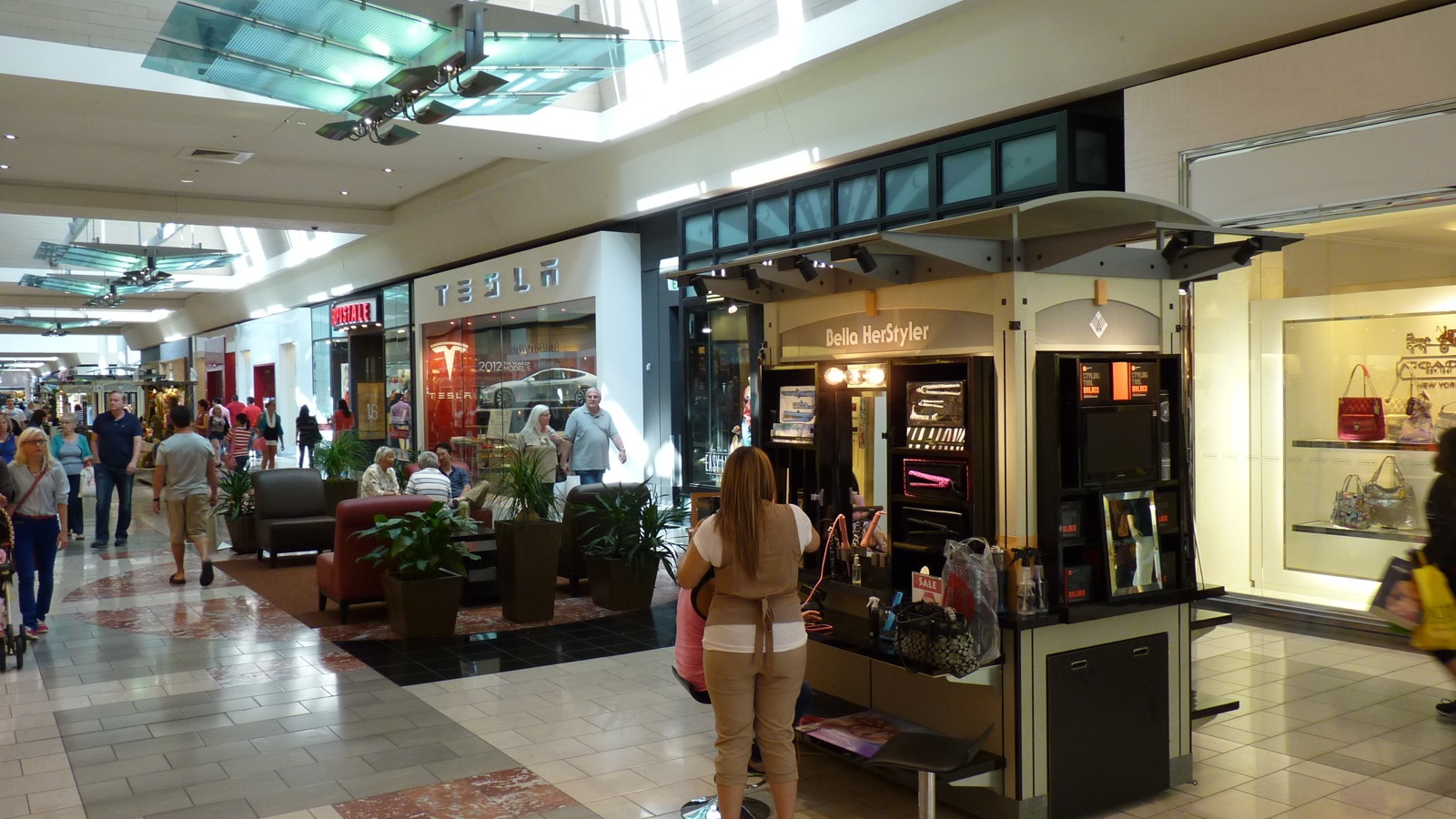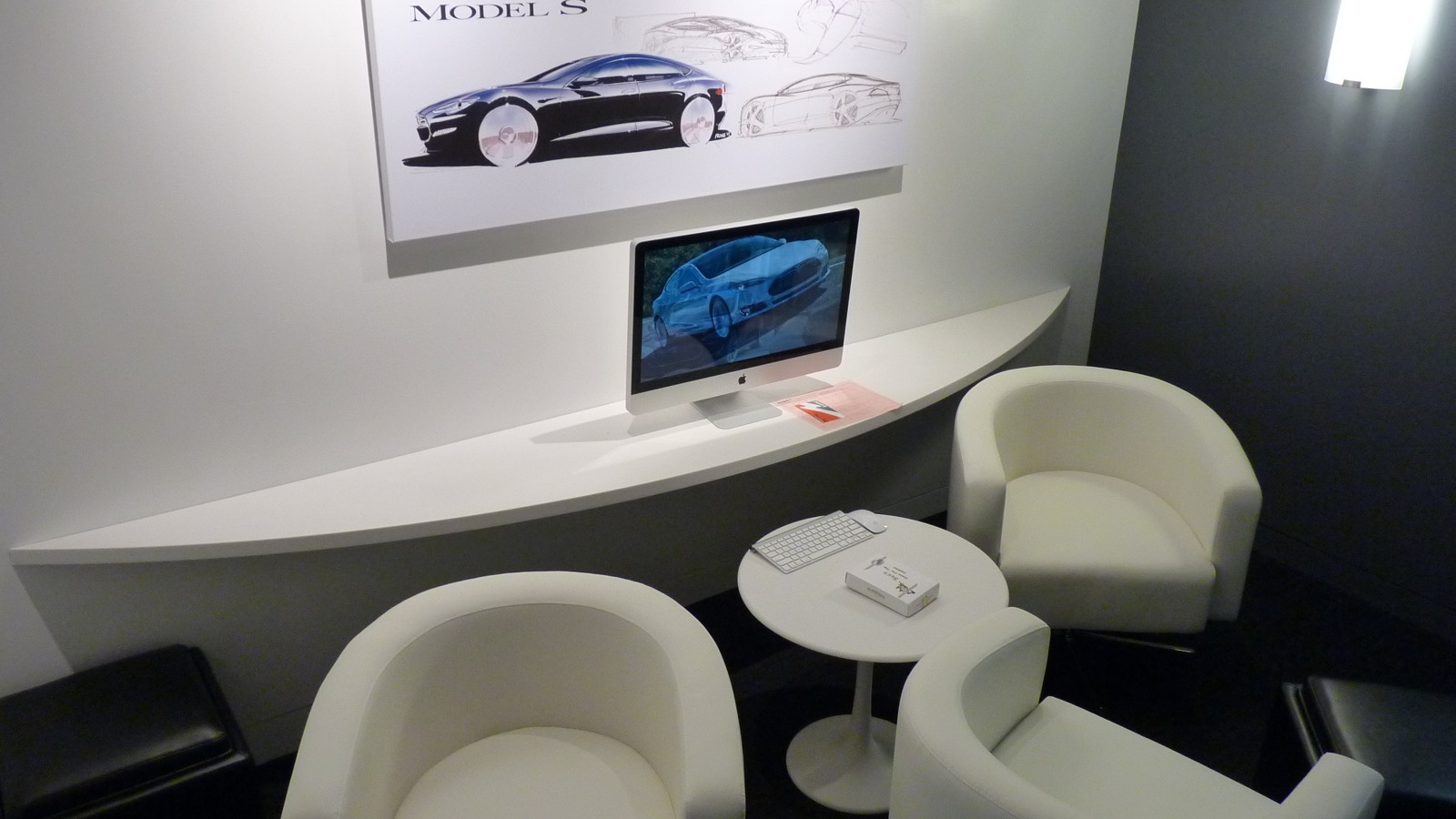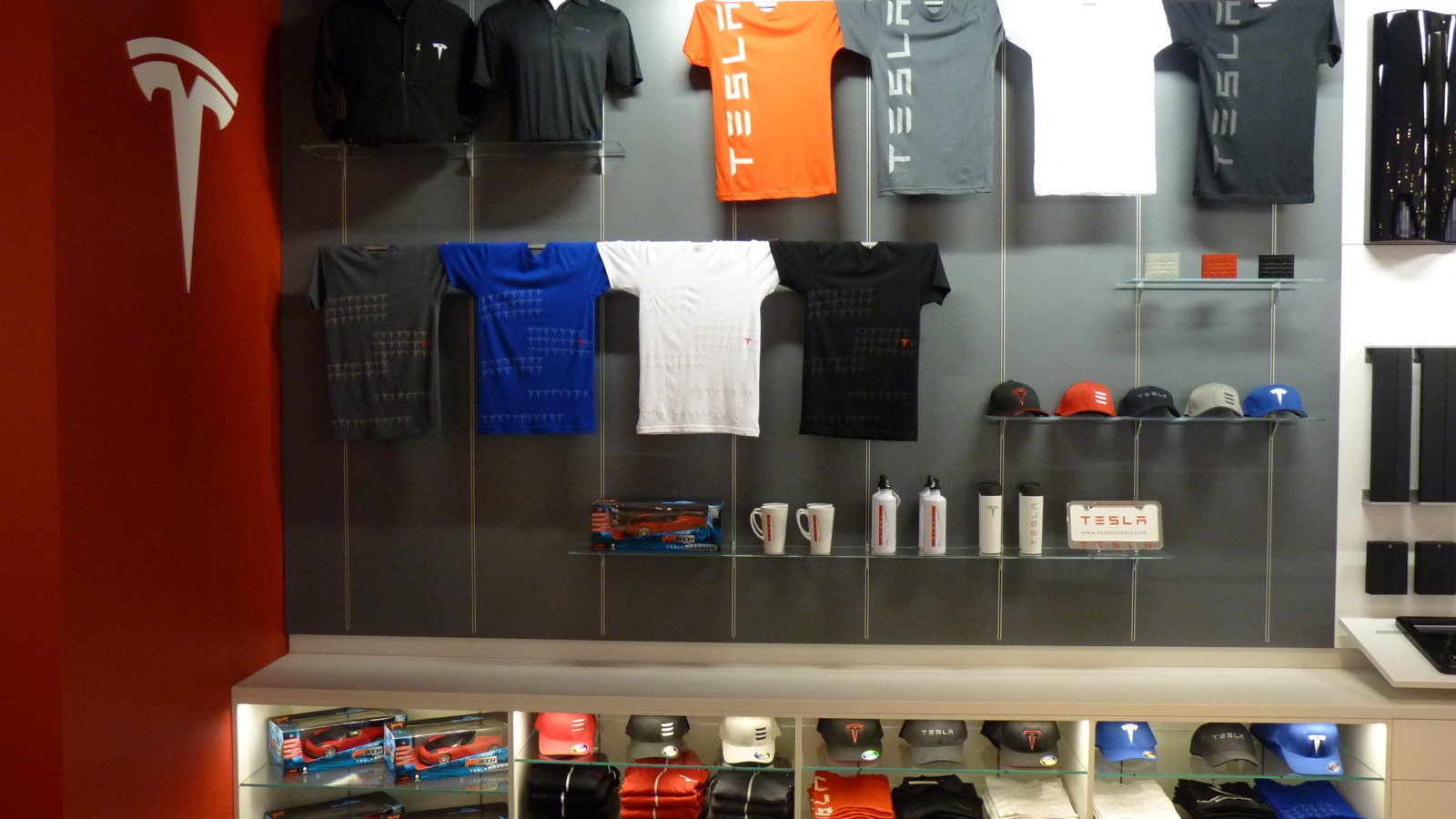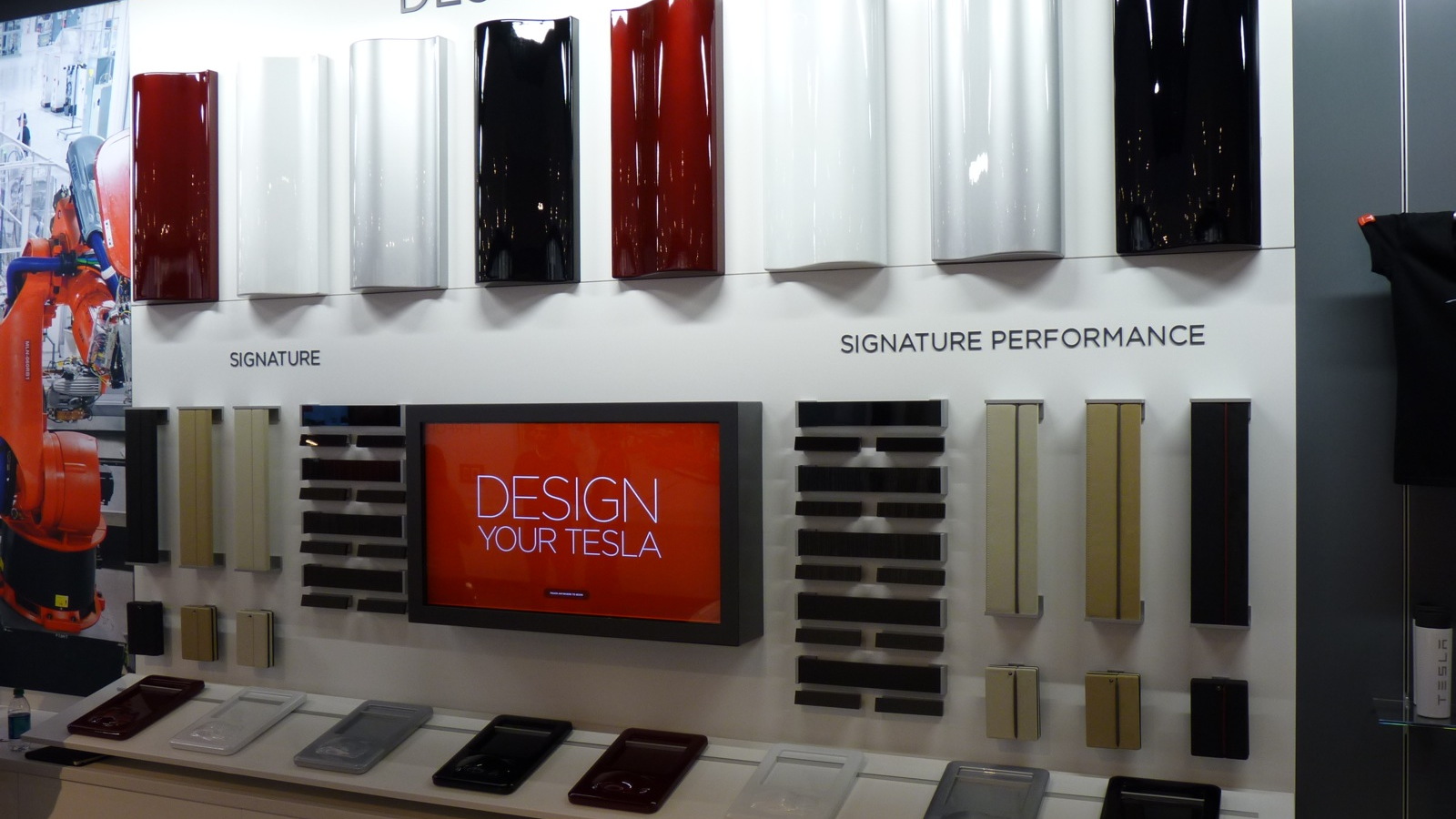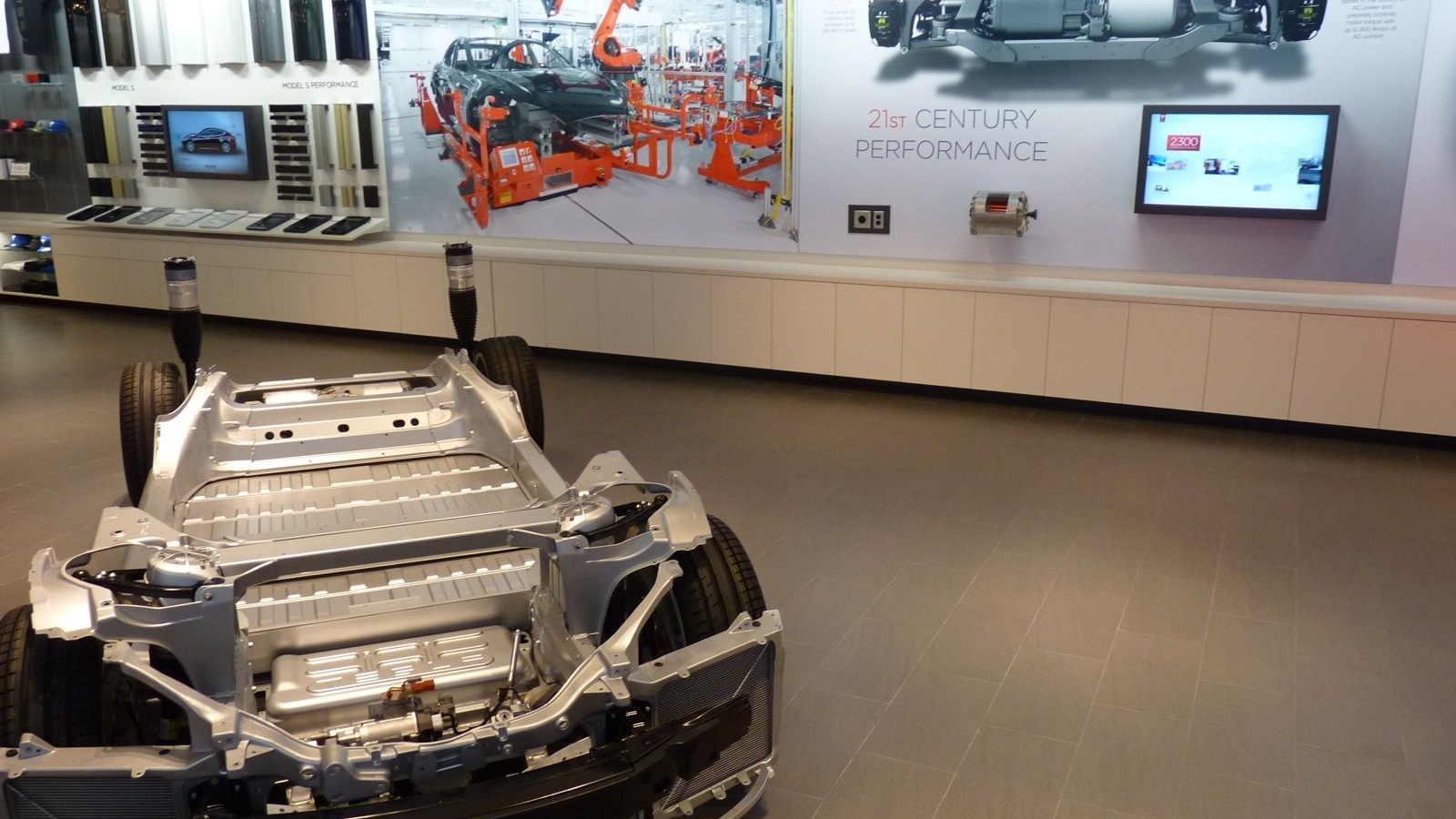And, in what may be surprising to anyone who’s ever bought a new vehicle or been involved with the industry, there’s one other key difference: Tesla plans to do it entirely without traditional dealership franchises.
Instead, it’s building on the success of the ‘store’ strategy fine-tuned and carefully expanded by Apple—fine-tuned actually through the same person who’s now Tesla’s VP of sales and ownership experience, George Blankenship.
But through the years, other such attempts to sell cars from an automaker directly to the consumer have fallen flat. When we caught up with Blankenship last week, just before the opening of the electric automaker’s new Portland store, we asked him why the company is going about retailing its vehicles so differently.
“It’s sort of been that way for a hundred years; that is the model,” said Blankenship. “The model is that they do a bunch of research, hold a bunch of focus groups, and they decide that this is a car we should build; they design that car, they engineer it and manufacture it, and then they sell it to some dealer who then tries to sell it.”
“And it works, it works with thousands of cars sold every single day,” summed Blankenship, who pointed to Tesla’s different development process and revolutionary product. “That’s just not how we’re doing it.”
As we outlined last week, Tesla’s store strategy is clearly working—for informing new people about electric cars, bringing new people into the Tesla fold, and eliciting deposits on the Model S. The automaker has been hitting 11,000 visitors or more in a single week at at least one of its stores, and among its new stores designed around foot traffic it passed a million visitors so far in 2012.
Stores, not dealerships. Does it matter?
But wait. Aren’t dealerships—and our franchise system over them—highly regulated by the states? How can Tesla sell cars this way?
According to Leonard Bellavia, a franchise lawyer and expert in this field, they can’t—even when they avoid following a conventional dealership model. And while the money might not technically change hands at or to the dealership, Bellavia still believes that state and local governments may decide that such ‘factory stores’ can’t operate in their current way.
“Most states prohibit ‘factory stores’ and that is why Tesla is quick to point out that it doesn’t sell cars but rather refers customers to its website,” said Bellavia. “The problems it will encounter stem from the fact that the ‘selling’ of a vehicle does not require the actual signing of a contract and the taking of money.”
Selling, as used in relation to these state statures, generally also includes a long list of associated activities like displaying, test driving, or even demonstrating a vehicle’s features, Bellavia notes. “Tesla admits that it will facilitate the delivery of a vehicle in its locations, which also constitutes ‘selling,’” he adds.
“Every single state, every municipality, that a car company does business in, has a different set of rules and regulations,” said Tesla's Blankenship, who noted that the company’s strategy has of course been vetted by their legal team. “What I know is that we do what we can do in every area, we comply wherever we go and do what we’re allowed to do.”
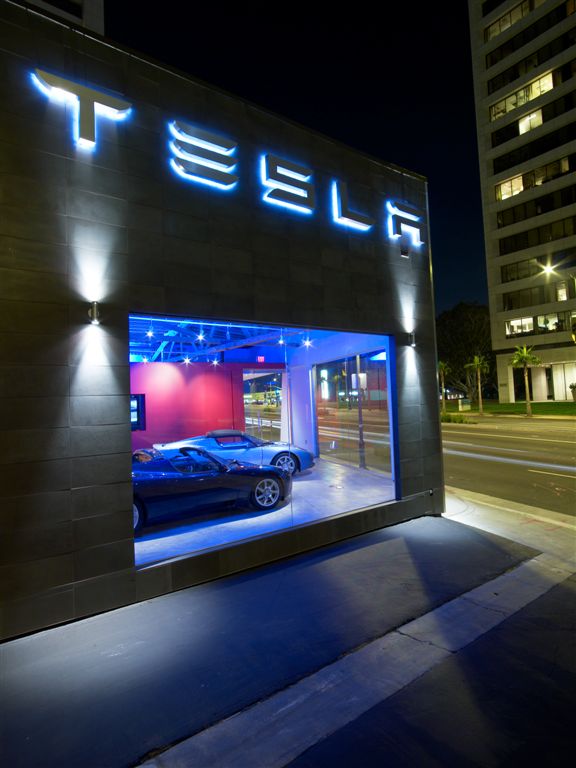
Tesla Store in LA
Franchise lawyer Bellavia has another argument, though: that the states might have a legitimate public-safety issue because stores aren’t licensed dealers. “The advantage of a franchised system is that independent dealers have a vested interest in their business, with many millions of dollars invested,” he argues. “There is a financial incentive to abide by laws, and satisfy customers as the penalty is the loss of a huge investment.”
The Tesla buyer in states other than California “does not have the same protections, and may be told that they are dealing with a California company and therefore have a far more difficult time seeking redress,” Bellavia believes.
Franchised dealers are under contractual obligations to franchisors (either manufacturers or distributors), and accept legal liability under state and local laws applying to licensed dealers.
Dealerships bring dollars to the local economy
There’s also the fact that our franchise sales system, like it or not, pumps a lot of money into the economy and employs far more people than all of the automakers, combined, do directly. U.S. new-vehicle dealerships (there are about 17,540) employed a peak 1.1 million people in 2008, and with the economic recovery it’s on the rise again, to about 933,500 in 2011, according to the NADA.
The amount of money that dealerships bring to local economies is rather astounding as well. The average U.S. dealership in 2011 had an annual payroll of $2.6 million, split over 53 people, for an average annual amount of more than $49,000 per employee. Nationally dealership payroll totals $45.8 billion—11.7 percent of the total U.S. retail payroll. And on a local basis, dealerships provide extensive support to civic and charitable organizations.
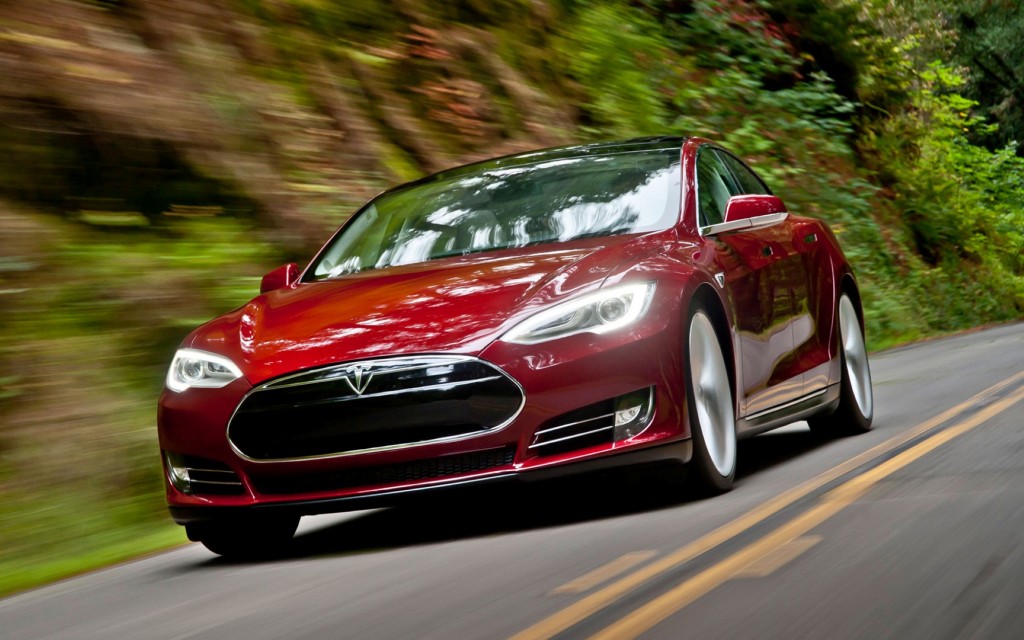
2012 Tesla Model S Signature
For now, no states or municipalities have decided to pick that fight with Tesla, and as a niche player Tesla doesn’t pose a major threat to the franchise system. And for Tesla, keeping it simple, keeping their overhead and liabilities low, and keeping its structure simple, is looking like a strategy for survival.
“We have the car; it costs a certain amount to build; and we have that margin, and we don’t give any of that up,” said Blankenship. “We look at it more as a retail model, as a business, where we will make a margin on each car, not 'How much can I make and put this car on the road?'”
“That’s how we’re going to bring cashflow into the company, to specifically do business like a retailer, not like an auto dealer.”
+++++++++++
